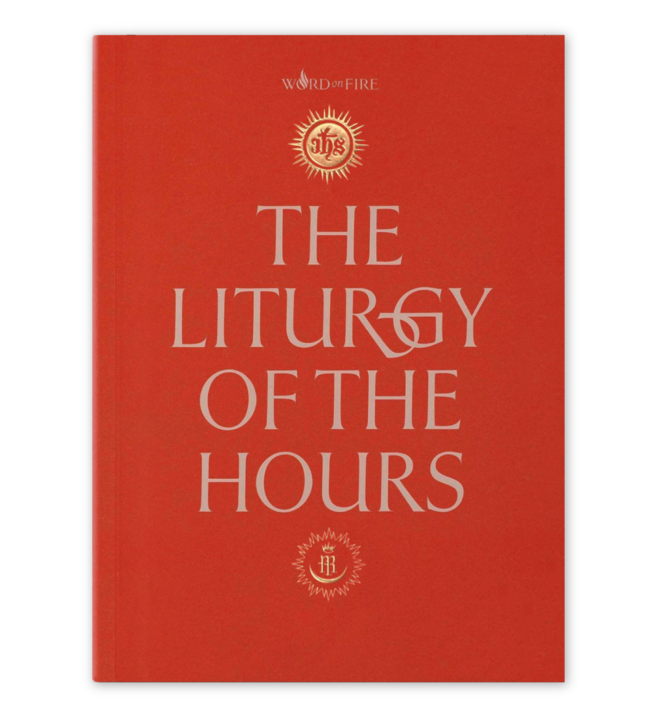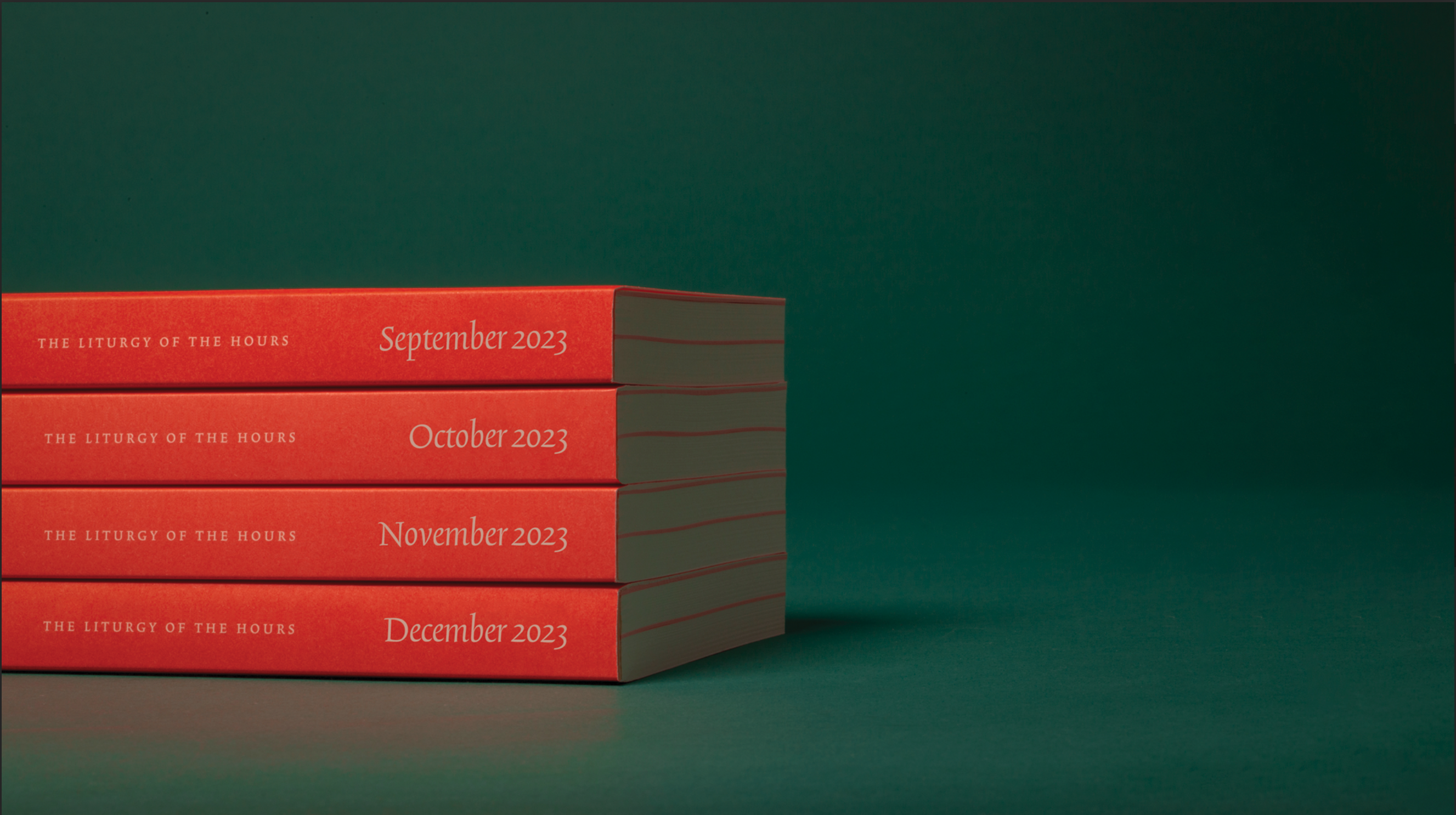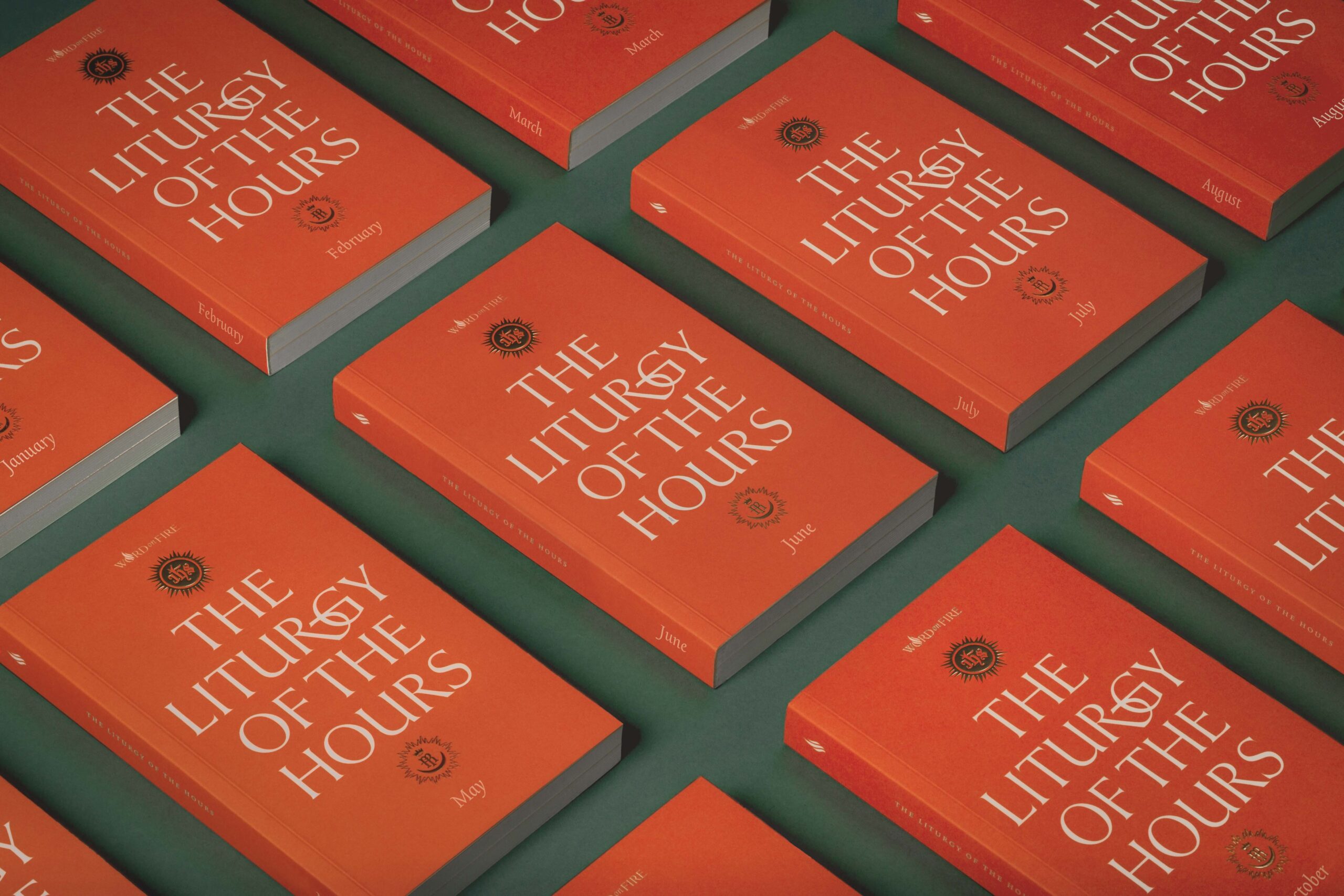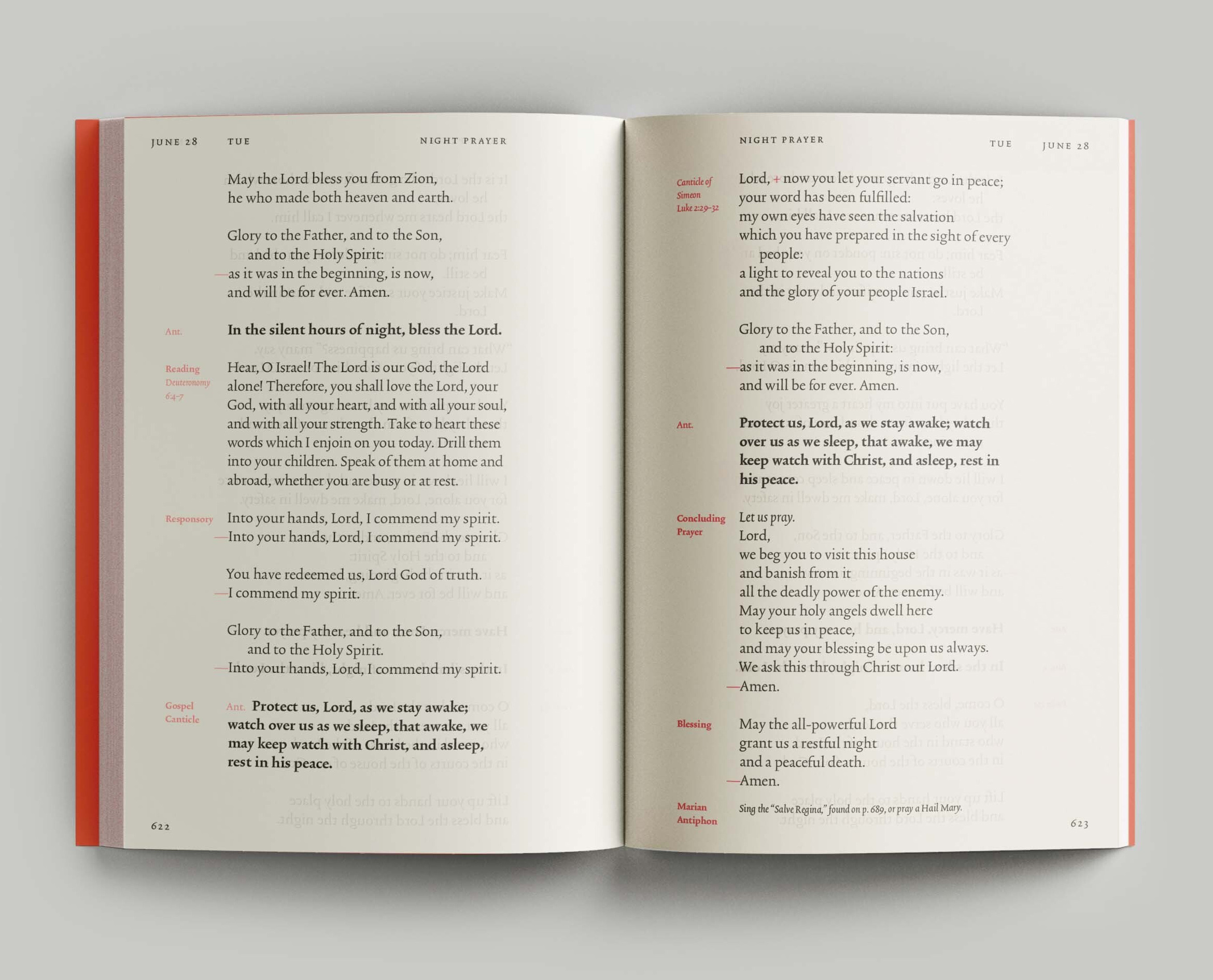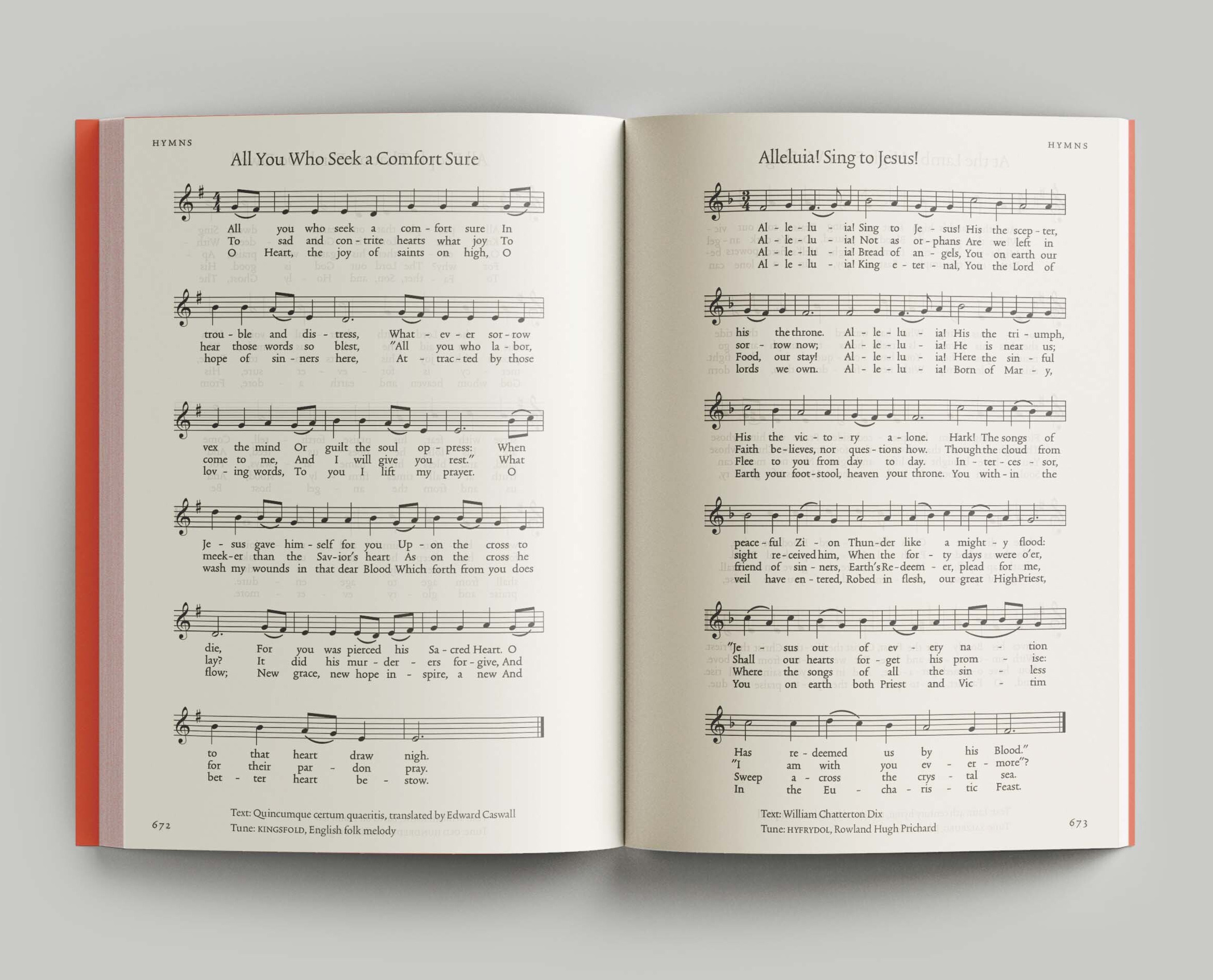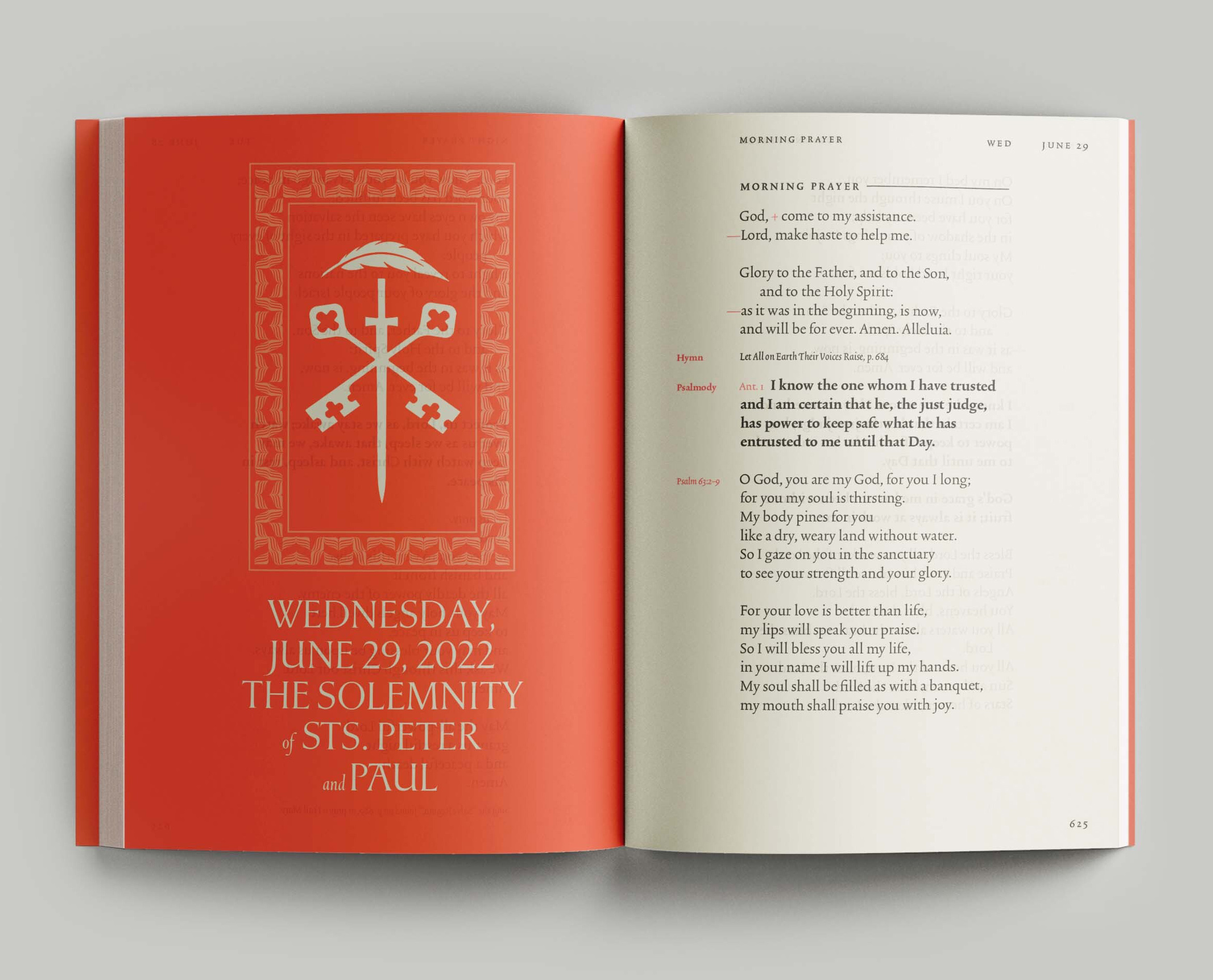What is the LOTH?
A brief introduction to this ancient prayer of the Church...
The Liturgy of the Hours is an ancient, structured way of praying Scripture throughout the day, focusing especially on the Psalms. It hearkens back to the Jewish custom of praying at fixed hours, a practice early Christians continued. By the medieval period, monks chanted the entire Psalter, all 150 Psalms, throughout each week, and sometimes in a single day!
Eventually, this form of prayer became known as the Liturgy of the Hours, also called the Divine Office. It is a liturgy because, like the Mass and other sacraments, it is a public prayer of the Church, Christ’s Mystical Body, as distinct from private devotions such as the Rosary, novenas, or personal prayer.
Its purpose is to sanctify the day and the whole range of human activity. It does this by bathing the morning, afternoon, and evening in prayer, so that “the whole course of the day and night is made holy by the praises of God.”
Saints up and down the centuries have prayed the Psalms each day, including John Paul II, Pier Giorgio Frassati, Thérèse of Lisieux, Thomas Aquinas, Augustine, Benedict, and the first Apostles. And, of course, this is how Mary, Joseph, and Jesus prayed too. They knew, loved, and prayed the Psalms. So, you’re entering into this same tradition of prayer shared by the greatest men and women in Christian history.
The Liturgy of the Hours is composed of five major “hours” or times of prayer:
• Morning Prayer, also known as Lauds, prayed first thing in the morning
• Daytime Prayer, prayed sometime between mid-morning and mid-afternoon
• Evening Prayer, also known as Vespers, prayed in the early evening
• Night Prayer, also known as Compline, offered just before bedtime
• Office of Readings, the longest hour, featuring lengthy readings from the Bible, Church Fathers, or other saints, prayed at any point during the day
The Word on Fire Liturgy of the Hours book contains the core Hours of Morning, Evening, and Night prayer.
The word “hours” can be misleading. It doesn’t refer to the time it takes to complete each prayer, but to the hours of the day. None of the liturgical hours takes anywhere close to sixty minutes. In fact, the two main hours, Morning and Evening Prayer, take around fifteen minutes each, while Night Prayer takes only five to ten minutes.
The Liturgy of the Hours is well-known among clergy and religious, who are required to pray the five major Hours every day. Permanent deacons are obliged to pray Morning and Evening Prayer.
Among the laity, the Liturgy of the Hours has been less popular, but that is starting to change.
The Second Vatican Council taught that “the laity, too, are encouraged to recite the divine office, either with the priests, or among themselves, or even individually.”
Recent popes have repeated this invitation. Pope St. Paul VI especially emphasized the call for families to pray the Liturgy of the Hours, saying, “No avenue should be left unexplored to ensure that this clear and practical recommendation finds within Christian families growing and joyful acceptance.”
Why pray the LOTH?
First, it unites us to Jesus Christ.
The Liturgy of the Hours joins us with Christ in singing an eternal hymn of praise to the Father. As Vatican II taught, “It is the very prayer which Christ Himself, together with His body, addresses to the Father” (Sacrosanctum Concilium 84). If you want to grow deeper in your relationship with Christ, and you already frequent the sacraments, your next step should be to begin praying the Liturgy of the Hours. Few practices will draw you closer to Jesus.
Second, the Liturgy of the Hours allows you to pray with the Church.
Personal prayer is good and necessary, but when the Church offers praise to God through the Liturgy of the Hours, “it unites itself with that hymn of praise sung throughout all ages in the halls of heaven” (General Instruction on the Liturgy of the Hours 16). We join not only people from every tribe and tongue, every people and nation, but the entire communion of saints in heaven.
Third, the Liturgy of the Hours is the highest form of prayer after the Mass.
Why? Because the Liturgy of the Hours is not just the private prayer of some Christians, but the unified, sacred prayer of the whole Church, uniting all the faithful, from all vocations, in all countries, into one single prayer to the Father, echoing the very Word of God back to its source. It’s also the supreme way to pray as a family. Pope St. Paul VI affirmed this in Marialis Cultus, calling it “the high point which family prayer can reach” (Paul VI, Marialis Cultus 54).
Fourth, the Liturgy of the Hours is thoroughly biblical.
“Its readings are drawn from sacred Scripture, God’s words in the Psalms are sung in his presence, and the intercessions, prayers, and hymns are inspired by Scripture and steeped in its spirit” (General Instruction on the Liturgy of the Hours 14). The more you pray the Hours, the more the Bible saturates your mind and heart. You’ll begin noticing yourself memorizing large chunks of Scripture—the Canticles especially, which are repeated each morning and evening—and you’ll find that biblical passages spring to mind during your own quiet, personal prayer. All of this will make your prayer more biblical.
Fifth, the Liturgy of the Hours will mature and deepen the rest of your spiritual life.
After praying the Hours for some time, you will begin to see the world differently. You will develop a renewed spiritual vision, seeing the world as God sees it, more attuned to the dynamics of justice, love, sin, compassion, and forgiveness. You are changed as a consequence. You will also notice your times of personal prayer outside the Liturgy of the Hours becoming more elevated and intense. The Liturgy of the Hours incorporates each major dimension of Christian prayer—worship, thanksgiving, petition, and intercession—and by praying the Hours, you become more proficient in each one.
Sixth, the Liturgy of the Hours allows you to “pray without ceasing.”
Jesus taught about the need to “pray always and not to lose heart” (Luke 18:1), and St. Paul directed us to “pray without ceasing” (1 Thess. 5:17). But for many Christians, these directives seem unrealistic, if not impossible. How can we pray continually, especially when our days are jam-packed with duties and commitments? The Liturgy of the Hours offers a solution, allowing you to lock in times of prayer throughout the day and, more than that, combine your voice with millions of others throughout the world who are also praying the Hours. At every moment, someone somewhere is offering these prayers to God. So, while we might not be able to “pray without ceasing” as individuals, we can do so together as a Church.
Seventh, and finally, the Liturgy of the Hours makes God the center of your day.
When you begin each day with Morning Prayer, close it with Evening Prayer, and offer Night Prayer before bed, you establish three fixed pillars during the day around which the rest of your activities turn. For other people, the main pillars of the day might be breakfast, lunch, and dinner, or perhaps work meetings or other activities. Everything else, including spiritual commitments, fits around those moments. But that changes when you pray the Liturgy of the Hours. Prayer becomes the new hinge of your day, reorienting your mind so that you give highest priority to the things of God.



